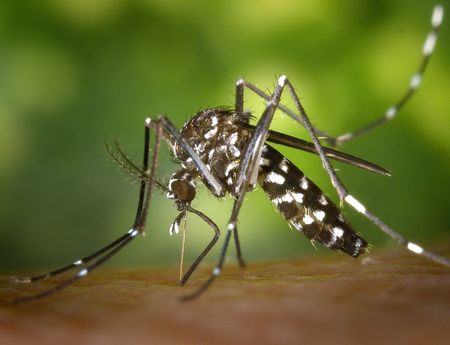
Jagiellonian University researchers from the JU Małopolska Centre of Biotechnology, the Faculty of Chemistry, and the Faculty of Biophysics, Biochemistry and Biotechnology indicated that one of polymers functions as an effective inhibitor of Zika virus. Their paper was published in Polymers for Advanced Technologies, a peer reviewed research journal issued since 1990 by John Wiley & Sons publishing house.
Zika virus (ZIKV) is related to viruses responsible for a number of dangerous diseases, such as dengue fever, yellow fever, West Nile fever, tick-borne encephalitis, or Japanese encephalitis. ZIKV is mainly transmmitted by mosquitos of Aedes species, which are active during the day, especially in the morning and late afternoon and can be encountered in tropical forests, in the countryside, and also in cities. The most common symptoms of the disease include moderate fever, muscle or joint pain, retrobulbar pain, conjunctivitis, itchy papular rash, and general fatigue. The symptoms usually start a few days after the mosquito bite and in most cases do not last longer than a week. The infection can be asymptomatic in up to 80 percent of cases.
Unfortunately, in a small group of infected people the infection can cause the Guillain-Barré syndrome, neuropathy, or myelitis. But ZIKV is most dangerous when pregnant women are infected, possibly leading to microcephaly as well as other birth defects and infant deaths. Currently it does not pose danger to the Polish population, but climate changes lead to the rapid broadening of its geographic range, with the first cases already occurring in the south of Europe.
‘Our research indicated that PASNa, a degradable polymer used in various biomedical applications, acts as an efficient ZIKV inhibitor. The mechanistic studies indicated that PASNa binds to ZIKV particles, thus inactivating the virus. Although intravenous administration of the polymer is difficult to imagine at the moment, it has many possible applications (such as isolation, identification or cleansing) in which it may prove useful’, said Prof. Krzysztof Pyrć, one of the paper co-authors.
The article ‘Polymers as candidates for broad-spectrum antivirals - in vitro inhibition of Zika virus with sodium polyanethole sulfonate’ was authored by Dr Aleksandra Milewska, Magdalena Górecka, Dr Artur Szczepański, and Prof. Krzysztof Pyrć (JU Małopolska Centre of Biotechnology); Dr Magdalena Obłoza, Aneta Medaj, Prof. Maria Nowakowska and Prof. Krzysztof Szczubiałka (JU Faculty of Chemistry) as well as Dr Paweł Botwina and Dr Piotr Bonarek (JU Faculty of Biophysics, Biochemistry and Biotechnology).





